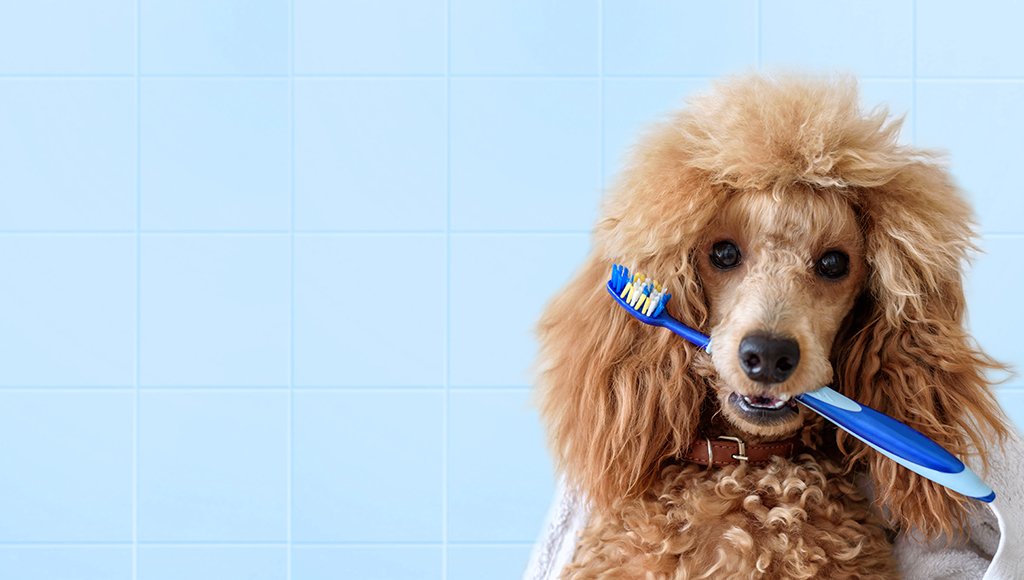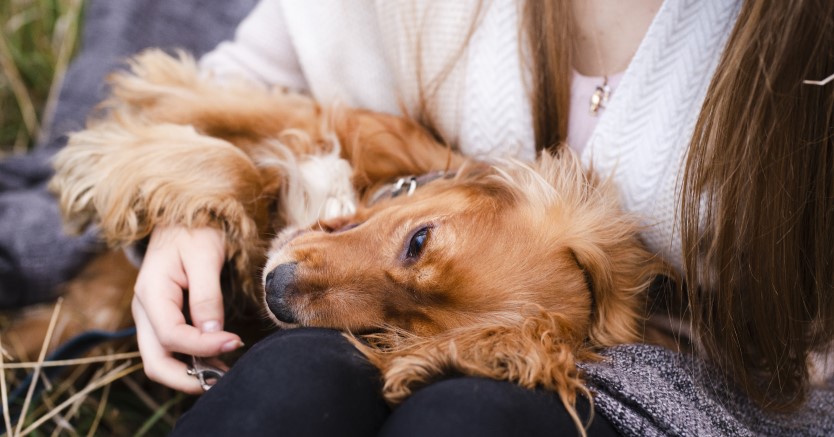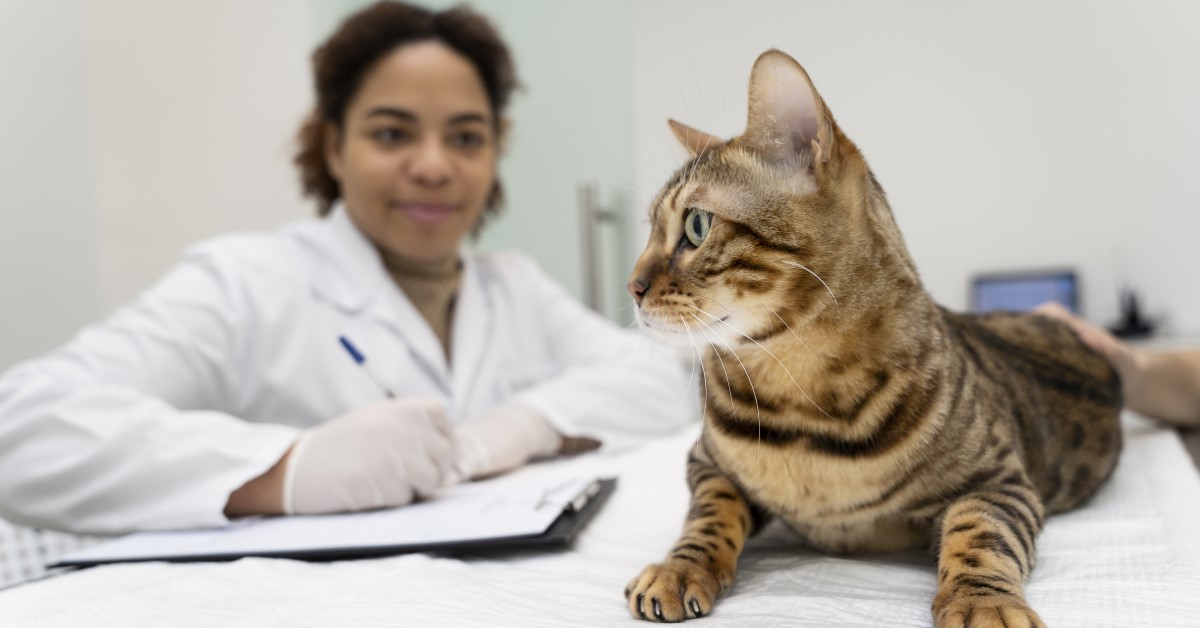Important Oral Hygiene Tips and Facts For Pets
According to the AVMA, more than 85% of dogs and cats at least four years old have some degree of gum disease.

According to the AVMA, more than 85% of dogs and cats that are at least four years old have a condition in which bacteria attack the soft gum tissue. This condition is called periodontal disease. Periodontal disease is the final stage in a process that begins with the development of plaque on your pet's teeth.
Why Oral Healthcare is Important for Pets
For the sake of your pet's health and comfort, periodontal disease is a threat that should not be ignored. Many of the signs of the disease are hard to miss. Bad breath, discolored teeth and swollen gums that may bleed easily can all be early indications of trouble in your pet's mouth. Late-stage periodontal disease can also cause permanent damage, including loose teeth and tooth loss which could make eating painful and difficult.
How Problems Begin
Periodontal disease begins when plaque, a mixture of bacteria and food debris left on the tongue or between the teeth, builds up on tooth surfaces and works its way under the gum line. Toxins released by the bacteria cause an inflammatory reaction that can lead to destruction of important gum tissue and bone that anchor the teeth in place. If the bacteria enters the blood stream, they can even affect vital organs such as the heart, liver, and kidneys.
Serious and Common
Periodontal disease is not only serious, it's also more common than most owners realize. In fact, more than 80% of dogs have some degree of periodontal disease by the time they are four years old. It's easy to understand why periodontal disease is the most frequently diagnosed health problem in cats and dogs.
Prevention is Always the Best Protection from Periodontal Disease
Preventing periodontal disease by keeping your pet's teeth clean and gums healthy isn't just a job for your veterinarian, but your job, too. While nothing can take the place of regular visits to the veterinarian for checkups and a good professional cleaning, ongoing follow-up oral care at home is just as important in helping to control plaque and future tartar formation.
Helpful Tips For Brushing Your Dog’s Teeth:
It may come as a surprise to you, but good dental health for your dog is just as important as it is for you. Without proper oral hygiene and dental care, your dog can develop cavities, tartar, plaque and gingivitis. Your dog’s teeth should be brushed and flossed on a regular basis because dogs usually aren’t picky eaters and will eat anything. Germs and bacteria can grow in your dog’s mouth at an alarming rate if left unchecked.
Your dog’s teeth need to be brushed regularly and correctly; however, a normal toothbrush and toothpaste used by humans cannot be used. You can get the proper gel or toothpaste from your veterinarian. The type of toothbrush you use can be chosen from a variety of dog toothbrushes available that you actually put right on your finger. You could use a human toothbrush if you need to, but human toothpaste will make your dog sick. Also, your dog may not let you brush its teeth with human toothpaste because a dog’s toothpaste is flavored to taste like meat.
It is not difficult to brush your dog’s teeth once you get the hang of it. Simply coat the toothbrush bristles with the dog toothpaste. Distribute the toothpaste evenly on all your dog’s teeth. Using a back and forth motion, start brushing from one side of the mouth around to the opposite side; the lower and then the upper, or vise versa. Check for any leftover food that may get stuck between the teeth and make sure all the dog’s teeth are clean.
Puppies can be trained to have their teeth brushed daily. Getting them used to this routine when they are very young will make brushing their teeth as adult dogs much easier. Use little treats and rewards so your puppy feels safe in letting you put this strange object in its mouth. It should only take a few attempts before the puppy gets used to the routine. Adult dogs can be harder to train, so you may need to consult your veterinarian for help with this.
If you can convince your dog that brushing his teeth is fun, it will be easier for you. Use things such as rubber toys to keep your dog’s teeth clean and healthy between brushings. Choose hard rubber toys, not soft ones. The hard rubber toys work to clean your dog’s teeth, and are sturdier, allowing your dog to gnaw on them hard and often, and to enjoy them for a long time.
Ready to start saving money on pet wellness care?
Then take a look at Mint Wellness, the pet wellness plan that provides fast reimbursement on routine pet care. Save on vaccinations, wellness exams, preventatives, dental, and more!
Learn More


